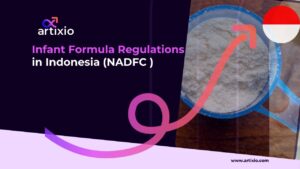Food adulteration has led to many deficiencies in the human body. This has led to the emergence of nutraceuticals or dietary supplements, which try to fill the nutritional gap that our daily meals fail to meet. Hence it is very important that we incorporate nutraceuticals or food supplements in our routine life to promote healthy living. To understand what exactly nutraceutical is continue reading below.
What Are Nutraceuticals?
The term “nutraceutical” is formed by two words which are “nutrient” and “pharmaceutical”.
Nutraceuticals are non-specific biological treatments to prevent ill-body symptoms and increase overall human well-being.
The term nutraceutical is coined by Stephen DeFelice who is the founder and chairman of the Foundation for Innovation in Medicine, an American organization based in Cranford, New Jersey, came up with the term in 1989.
Nutraceutical Labeling Compliance Importance In India:
- In terms of a product’s safety, quality and labelling requirements nutraceutical labelling compliance plays a vital role.
- A nutraceutical which is not standardized according to the labelling compliance by FSSAI shall not be allowed to gain market authorization.
- These regulations ensure safety for human consumption.
- They also prevent misleading information about the product.
- It helps the consumer to understand the dosage recommendations and direction of use.
- Labelling compliance helps the nutraceutical to set product standards.
- These sets of compliance regulations help in efficient governing of the laws in the industry.
FSSAI Labeling Regulations For Nutraceuticals:
In India, FSSAI regulates the labelling regulations for nutraceuticals. Nutraceuticals Labelling regulations in India are as follows:
- The label should not claim that it has the property of preventing, treating or curing a human disease.
- The statements made by the brand regarding the product should have scientific evidence.
Mandatory Information On Label:
The nutraceutical label should contain the following information mandatorily:
- “Nutraceutical” word.
- It’s common name
- Its ingredients and their quantity in terms of percentage as mentioned by ICMR (Indian Council of Medical Research) and it should also mention their nutritional and physiological values.
- Statement to keep out of children
- An advisory warning for ‘RECOMMENDED USAGE’
- An advisory warning ‘NOT FOR MEDICINAL USE’
- An advisory warning for harm caused due to excessive consumption.
- An advisory warning on side effects, contraindications, warnings, etc.
- Manufacture and Expiry date should be mentioned
- FSSAI license number should be mentioned.
- Storage and usage instructions should be mentioned clearly.
- Allergen information should be present if any.
Nutritional Information Format And Specification:
Nutrient usage level should be according to the Food authority, if the level is not specified it should be minimum 15 % of RDA as specified by ICMR.

- If a claim of higher nutrient content is made, the nutrient content shall not be less than thirty per cent of the recommended daily allowance and shall not exceed one RDA in any case.
- In cases where standards are not mentioned standards by international food standards body namely, Codex Page 8 of 76 Alimentarius Commission will be followed.
- Carbohydrate sugar content
- Ingredients limits should be as specified in the schedule, if not specified it should be according to the scientific data with documentary evidence.
Following is the format for nutritional information on the label:
| NUTRITIONAL SOURCE | COMMON SOURCE | ENERGY (kcal) |
| Carbohydrates (sugar content up to 10 g) |
Glucose, Fructose, Maltose, etc. | 4 kcal/gram |
| Protein | Whey protein. Soy protein, Casein, etc. | 4 kcal/gram |
| Fats | Veg oil, Omega-3 Fatty acid | 9 kcal/gram |
Labeling For Special Dietary Supplements:
Some special dietary supplements which are intended to be used in special cases such as to support body nutrition in any therapeutic conditions such as GI problems, orthopedic issues, etc. or even during pregnancy or postpartum. In these situations, nutraceuticals should mention clear indication on the label to prevent any mishap. Following are some labelling requirements:
- Any kind of special warning to be clearly written in a place where it can be easily noticed by the consumer.
- If the nutraceutical should not be consumed by pregnant and breastfeeding women, it should be clearly stated that “not for use during pregnancy and lactation unless prescribed by the doctor”.
- Any side effects if there should also be clearly mentioned.
International Labelling Standards:
Legal Metrology law (Labelling Standards):
The Legal Metrology Packaged Commodities Rules, 2011 provides guidelines for labelling of packaged products, Nutraceuticals being one of the packaged items adheres to this law. The following are their guidelines, according to which the label must be prepared:
- Generic names should be mentioned on the label.
- The net quantity should be mentioned on the label.
- The expiry date should be mentioned on the label.
- The retail price of the product should be mentioned.
- The name, address, telephone number, E-mail address of the person or office to be contacted in case of consumer complaints should be mentioned.
- Declaration should be written on the main package box
If one fails to adhere to these rules, he will be fined INR 25000 for first offence, Rs 50000 for second offence and for subsequent offence the fine would not be less than Rs 50000 and may extend to Rs 1,00,000 or imprisonment which may extend to one year or both.
Ministry of AYUSH (Labelling Standards):
The Ministry of AYUSH deals with rules and regulations for ayurvedic or traditional drug products in association with FSSAI. It regulates the quality control functions for Ayurveda, Siddha, Unani, and Homoeopathy (ASU&H) drugs and implement drugs-related initiatives. The following are the regulations made for labelling of ayurvedic nutraceuticals:
- The product name should clearly indicate the nature of the product.
- All ingredients should be mentioned with their common names.
- Daily recommended usage should be clearly mentioned.
- Manufacture and expiry date should be clearly mentioned.
- Proper storage conditions should be mentioned.
- Allergen information should be present.
- FSSAI license number should be mentioned.
- The product should mention “manufactured under license” if it is manufactured under approved license ayurvedic company.
BIS (Bureau of Indian Standards) Labelling Standards:
Bureau of Indian Standards (BIS) is the national body of India which is responsible for peaceful development of activities of standardization, marking and quality certification of goods. It also works for national priorities and other government initiatives such as Swachh Bharat, Digital India, etc. It confirms the safety, quality and reliability of the goods.
Thus, the key roles of BIS in nutraceuticals are as follows:
- Standardization of nutraceuticals and their label.
- Quality assurance of the packaging material including labels.
- Confirmation of adherence of quality standards for labelling compliance.
International Standards (US FDA & EFSA)
USA Labelling Regulations (DHSEA and FDA):
FDA regulates the rules and standards for nutraceuticals in the US. It works in association with Dietary Supplement health and Education Act (DSHEA). The rules and regulations are laid down by DSHEA and are implemented by FDA.
The following are the primary nutraceutical labelling requirements of US-FDA:
- The word “dietary supplement” should be mentioned on the label.
- All the ingredients should be mentioned with amount per serving.
- Claims, if any, should be mentioned on the label.
- Allergen information, warnings, precautions should be mentioned on the label.
- Label must consist of manufacture and expiry date.
- The label should be prepared only in English language.
- The label should have the manufacturer’s name and address.
EFSA Labelling Standards:
European Food Safety Authority (EFSA) is the European governing body for regulating scientific communication associated with food products. It is responsible for smoothly running the rules framed by European Union. EFSA keeps a check on all the labelling compliance, if they correctly followed such as name of the product, manufacture and expiry date, allergen and warning information, daily consumption limit, advisory statements such as keep out of reach of children etc.
Tips For Ensuring Nutraceutical Labeling Compliance:
- Keep abreast of any modifications to the regulatory requirements.
- Perform a thorough assessment of the product label.
- Adhere to all labeling regulations and double-check.
- Check labeling quality.
- Assemble a team of experts to conduct analysis for the audit.
- Encourage customer feedback regarding labels.
FAQs:
Can nutraceuticals make health claims on their labels?
Yes, nutraceuticals can make health claims, but these must be in accordance with FSSAI guidelines.
What are the challenges in Nutraceutical Labeling Compliance?
Meeting the requirements of the changing regulations, supporting claims made health point of view, meeting international standards are some of the common challenges.
How are labeling requirements different for special dietary supplements?
They are different as they provide clear usage instructions, disclaimers, dosage according to the recommended guidelines, statement that they are not intended for cure purpose and prohibition of use for pregnant and feeding women’s
What are the typical ingredients of a nutraceutical?
Vitamins, minerals, herbal extracts, probiotics, omega fatty acids, amino acids, and antioxidants, are the main ingredients of nutraceuticals.
Is FDA approval required for nutraceuticals?
Nutraceuticals, classified as dietary supplements, don’t require FDA approval before being marketed, but should be approved by FSSAI





